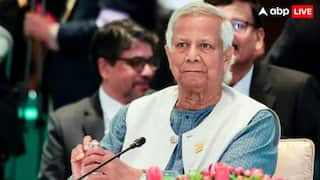Elon Musk Opens Up On Israel-Hamas Conflict, Says World War III Could Rise From Current Issues
Musk highlighted the industrial capacity of both Russia and China, indicating that a combination of these two nations, along with Iran, could present a formidable challenge to Western alliances.

In a recent X Spaces discussion on the Israel-Hamas conflict, owner Elon Musk expressed concerns about the potential consequences for global stability and said that World War III could stem from current disputes. Musk emphasised the need for the United States to maintain peaceful relations with Ukraine and work towards normalising relations with Russia to prevent the escalation of regional conflicts into a global conflict. He pointed out that the evolving relationship between Russia and China could pose a significant challenge to the United States, and he suggested that the US government should avoid actions that push Russia closer to Iran and China.
Musk highlighted the industrial capacity of both Russia and China, indicating that a combination of these two nations, along with Iran, could present a formidable challenge to Western alliances. He stressed the importance of economic power and industrial output in the foundation of war, suggesting that the West may not have an overwhelming advantage in this regard.
ALSO READ: Elon Musk Offers Wikipedia $1 Billion For Name Change In X Banter: Here's What Went Down
During the discussion, Republican presidential candidate Vivek Ramaswamy proposed a strategy in which Ukraine would return some of the land to Russia in exchange for Russia discontinuing military collaboration with China. Musk seemed to support this idea and suggested that the current borders in Ukraine could potentially become a permanent demarcation line to prevent further conflict.
Notably, Musk had faced criticism previously for initially declining to allow Ukraine to use his Starlink Internet service for military purposes. However, he later changed his stance, permitting Starlink to provide Internet access to both civilians and the military in Ukraine during the conflict. This change of approach aligned with efforts to help Ukraine maintain Internet access amid the crisis.
Musk's initial reluctance to let Ukraine use Starlink for military purposes was rooted in his preference for the technology's use in peaceful applications like education and entertainment. However, circumstances led to a shift in his stance, and he collaborated with the US government, specifically the Pentagon, to ensure continued Internet access for Ukraine during the conflict. It's worth noting that Musk's change of position garnered praise from Russian President Vladimir Putin, who referred to him as a "talented businessman."
Related Video
Apple creates a new record in iPhone sales after launch of iPhone 16 | ABP Paisa Live






































